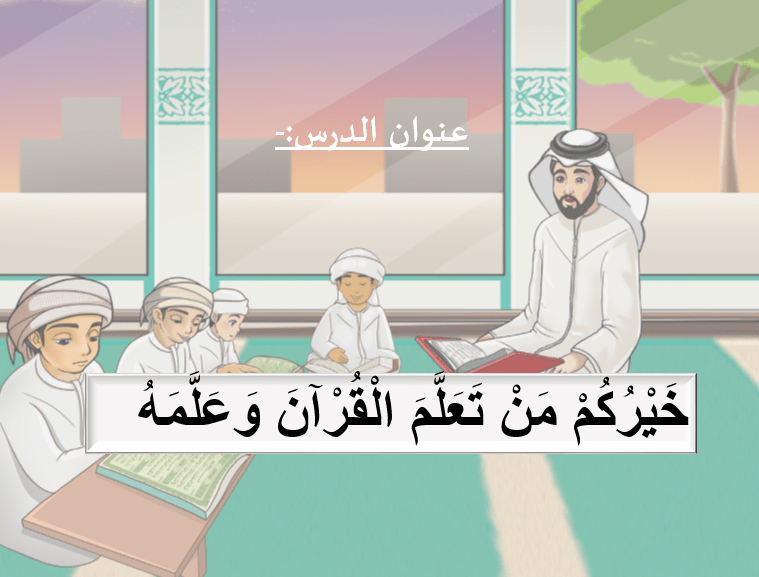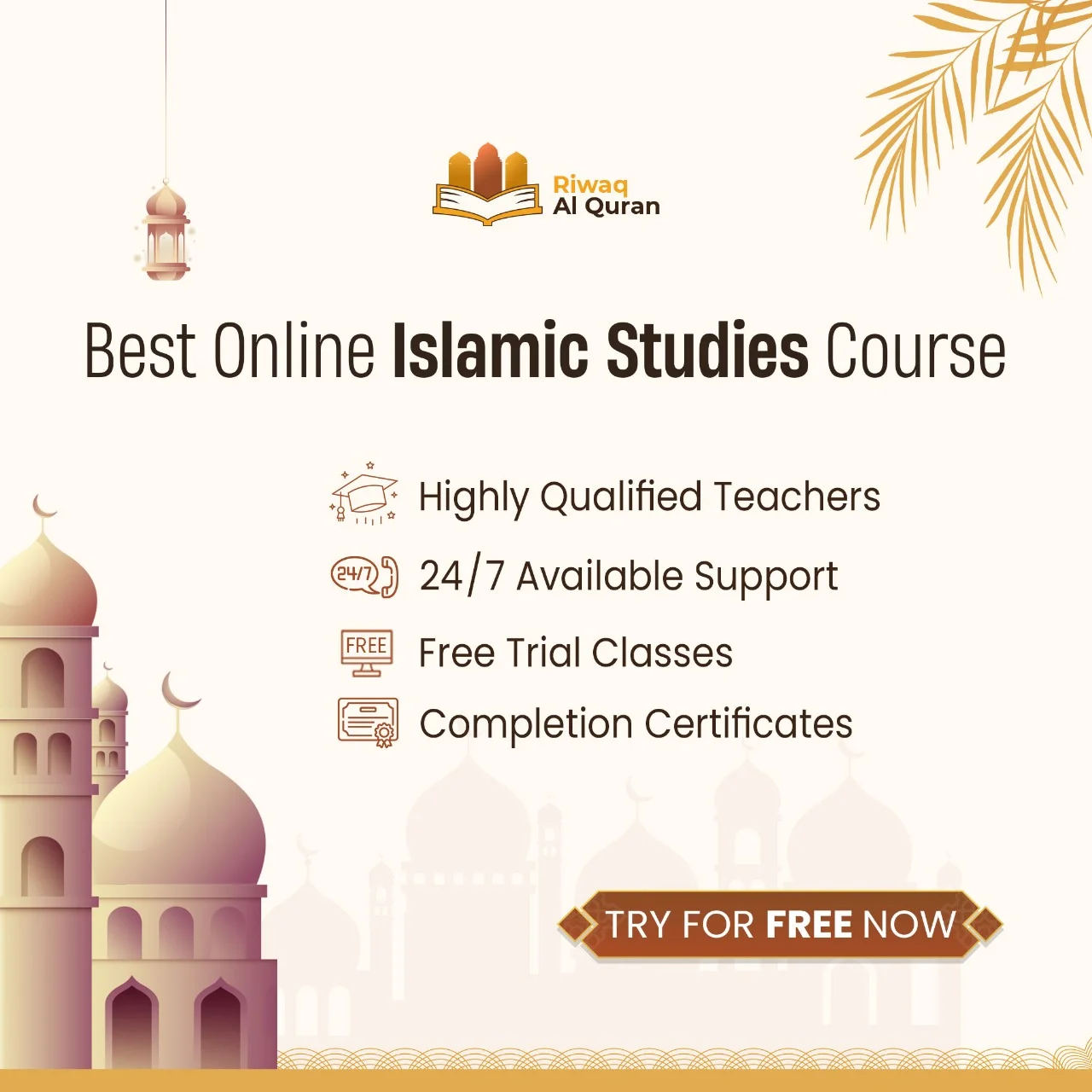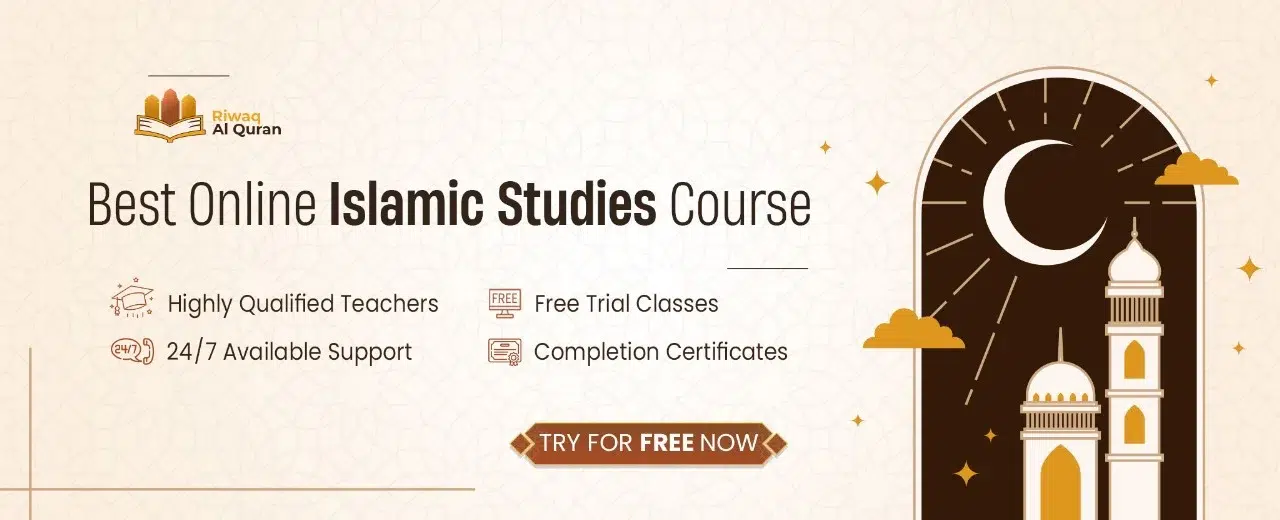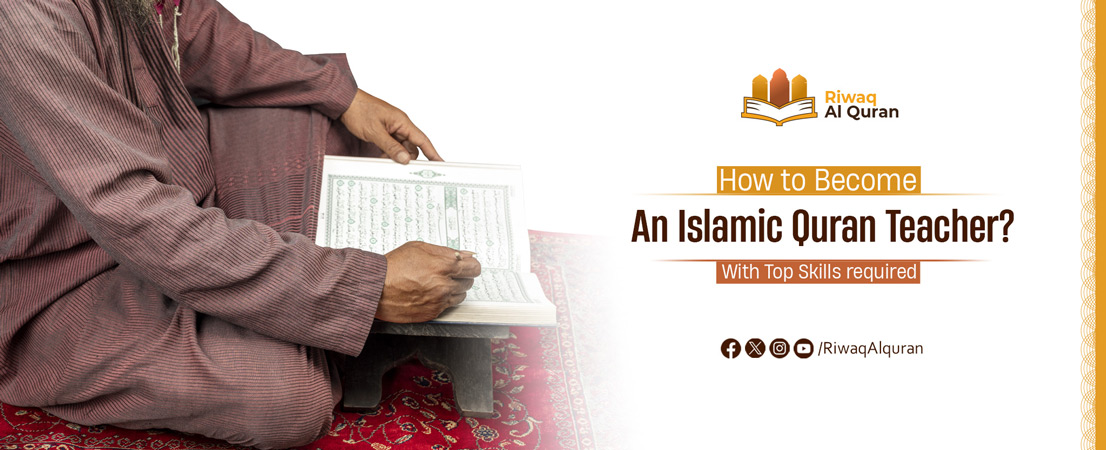How to Become A Quran Teacher? Teaching the Quran involves imparting understanding and connection to its teachings. As the final message from Allah, it guides individuals toward fulfillment in both this life and the Hereafter. Quran teachers serve as models, embodying its teachings in their actions. At Riwaq Al Quran, we tailor our approach to each student, fostering understanding and love for the Quran through interactive learning and compassionate guidance. Our goal is to create an environment where every student feels valued and inspired in their Quranic journey.
Do you want to leave your fingerprint and benefit others before death? What is the reward of becoming a Quran teacher? Have you started to memorize the Quran and want to go on this track? Are you confused about how to be a good Quran teacher? Keep reading this blog!
Table of Contents
What Is the Meaning of Teaching the Quran?
To begin, we should define what the meaning of teaching is, as it is the first step to understanding the nature of this way. The Quran is the last message of Allah the Almighty, sent to human beings to guide them to their happiness in this life and the Hereafter. In the Quran, Allah the Almighty guides His servants to the straight path, showing them how to maintain their interests and how to lead a just life system in their relationship with their Creator, themselves, and the world around them.
Thus, the first duty of Muslims is to deal well with the Quran and understand its purpose and messages to make good use of it in their life. In other words, Muslims should make it a top priority to understand the messages of the Quran to apply its commands.
The most important thing here is understanding that being a Quran teacher means you are a model, and deeds speak louder than words. Allah the Almighty says: “O you who have attained faith, why do you say what you do not do? It is most loathsome to Allah that you say what you do not do” [As-Saf 2-3].
Why Should Muslims Learn and Teach the Quran?
After knowing the concept of teaching the Quran and dealing with it in general, let’s now know why all Muslims should learn and teach the Quran. Teaching the Quran has many benefits in Islam. First of all, it is one of the greatest acts of worship. As Prophet Muhammad (PBUH) reported, [one of] the best among you are those who learn the Quran and teach it.
The second benefit is that teaching the Quran is one of the deeds whose reward continues after the death of the Muslim. Prophet Muhammad (PBUH) says: “When a man dies, all his good deeds come to an end except three: Ongoing charity, beneficial knowledge, and a righteous son who prays for him,” [Sunan An-Nasa’i].
Also, teaching the Quran is one of the ways to help in preserving it. To illustrate, there are two ways of preservation: by heart and by writing. One of Allah the Almighty’s ways to preserve this book is to facilitate its memorization for Muslims so that in every generation, there is a considerable group of memorizers from the time of the Prophet (PBUH) till now.

How to Become a Quran Teacher?
Becoming a Quran teacher is a noble endeavor that requires dedication, knowledge, and a deep spiritual connection to the Quran. Here are the steps to embark on this rewarding journey and learn how to become a good Quran teacher:
1. Develop Your Own Quranic Knowledge:
The foundation of being a Quran teacher is your own understanding and mastery of the Quran. Begin by studying the Quranic text with a qualified teacher or through reputable online resources. Focus on learning Tajweed), Tafsir), and memorization of Quranic verses if possible.
2. Enhance Your Recitation Skills:
Practice reciting the Quran regularly to improve your Tajweed and pronunciation. Seek feedback from experienced reciters or Quran teachers to refine your recitation technique. Joining a local Quranic recitation group or online forums can also provide opportunities for practice and feedback.
3. Formal Education in Islamic Studies:
While not always mandatory, obtaining a formal education in Islamic studies can greatly enhance your credibility and teaching abilities as a Quran teacher. Consider enrolling in a reputable Islamic university or seminary offering degree programs in Islamic studies or Quranic sciences.
4. Specialized Training in Quranic Education:
Many institutions and organizations offer specialized training programs for Quran teachers, focusing on teaching methodologies, classroom management, and curriculum development. Look for workshops, seminars, or online courses specifically designed for aspiring Quran teachers.
5. Gain Teaching Experience:
Gain practical teaching experience by volunteering at local mosques, Islamic schools, or community centers. Offer Quranic lessons to children or adults in your community, either individually or in group settings. Teaching the Quran to family members or friends can also provide valuable experience.
6. Seek Certification or Accreditation:
While not always necessary, obtaining certification or accreditation from recognized Islamic institutions can validate your credentials as a Quran teacher. Some organizations offer formal certification programs for Quran teachers, which may require passing exams or demonstrating proficiency in Quranic education.
7. Continued Learning and Professional Development:
Quranic knowledge is vast and ever-expanding, so commit yourself to lifelong learning and professional development as a Quran teacher. Stay updated with current trends, research, and advancements in Quranic education through reading, attending seminars, and engaging with fellow educators.
8. Embrace Ethical and Professional Standards:
As a Quran teacher, uphold ethical and professional standards in your conduct and interactions with students. Demonstrate patience, empathy, and respect for your students’ individual learning needs and cultural backgrounds.
How to Become an Islamic Teacher?
Becoming an Islamic teacher involves a broader scope than solely teaching the Quran. It encompasses imparting knowledge about various aspects of Islam, including theology, jurisprudence, history, and spirituality. Here’s how to pursue a career as an Islamic teacher:
1. Acquire Comprehensive Islamic Knowledge:
Start by acquiring a solid foundation in Islamic knowledge by studying core Islamic disciplines such as Aqeedah, Fiqh, Seerah, and Hadith. Enroll in formal Islamic education programs or study under qualified scholars to deepen your understanding of Islam.
2. Obtain Formal Education in Islamic Studies:
Pursue higher education in Islamic studies by enrolling in accredited degree programs offered by reputable Islamic universities or seminaries. Choose a specialization that aligns with your interests and career goals, such as Islamic theology, Islamic law, or Islamic history.
3. Gain Teaching Experience:
Gain practical teaching experience by volunteering at Islamic schools, mosques, or community centers. Offer Islamic education classes to children, teenagers, or adults in your community, covering topics such as Quranic studies, Islamic ethics, and Islamic history.
4. Participate in Teacher Training Programs:
Attend workshops, seminars, or training programs specifically designed for Islamic teachers. These programs often cover topics such as curriculum development, classroom management, teaching methodologies, and integrating technology into teaching.
5. Seek Certification or Accreditation:
Consider obtaining certification or accreditation from recognized Islamic institutions to validate your credentials as an Islamic teacher. Some organizations offer formal certification programs for Islamic educators, which may require passing exams or completing specific training requirements.
6. Stay Updated with Islamic Scholarship:
Keep yourself informed about current developments and advancements in Islamic scholarship by reading scholarly works, attending conferences, and engaging with fellow educators and scholars. Stay open to different perspectives and methodologies within Islamic education to enrich your teaching practice.
7. Cultivate Ethical and Professional Conduct:
Uphold ethical and professional standards in your role as an Islamic teacher, demonstrating integrity, fairness, and respect in your interactions with students and colleagues. Serve as a positive role model for your students, embodying the values and teachings of Islam in your words and actions.
8. Continued Learning and Professional Development:
Commit yourself to lifelong learning and professional development as an Islamic teacher, staying updated with new research, educational methods, and technological advancements relevant to Islamic education. Embrace opportunities for personal growth and refinement in your teaching practice.
By following these steps and continuously striving for excellence in your knowledge and teaching abilities, you can embark on a fulfilling career as both a Quran teacher and an Islamic teacher, making a meaningful contribution to the education and spiritual development of your students.

What Are the Skills of a Quran Teacher?
A Quran or Islamic studies teacher typically possesses a combination of skills that enable them to effectively teach the Quran to students. Here are some key skills:
1. Knowledge of the Quran:
A Quran teacher should not only be familiar with the text itself but should have a comprehensive understanding of its historical context and linguistic nuances. It is better to be well-versed in various schools of thought within Islamic scholarship to provide a well-rounded education to students.
2. Recitation Proficiency:
Mastery of Tajweed rules extends beyond mere technical correctness; it involves an appreciation. A proficient Quran teacher can not only recite flawlessly but can also instill in students a deep love and reverence for the Quran through their own recitation.
3. Patience and Empathy:
Beyond just imparting knowledge, a Quran teacher serves as a mentor and guide to their students. Patience is crucial in nurturing students through their individual learning journeys, while empathy allows the teacher to understand and address the unique challenges each student may face in their Quranic studies.
4. Effective Communication:
Clear and articulate communication is essential for conveying complex Quranic concepts in a manner that is accessible and engaging to students of varying ages and backgrounds. This includes the ability to adapt language and teaching methods to suit the comprehension level of different learners.
5. Adaptability:
Flexibility in teaching approaches is vital for accommodating the diverse learning styles and abilities present in any classroom setting. A skilled Quran teacher can adjust their methods on the fly, tailoring their instruction to meet the specific needs and preferences of individual students.
6. Motivational Skills:
Inspiring students to remain dedicated to their Quranic studies requires more than just imparting knowledge; it involves fostering a sense of purpose and spiritual fulfillment in their learning journey. A Quran teacher must be adept at recognizing and nurturing the intrinsic motivations of each student, encouraging them to strive for excellence in their studies.
7. Organizational Skills:
Managing the logistics of Quranic education, from lesson planning to student assessment, demands strong organizational skills. A well-organized teacher can ensure that lessons progress smoothly, resources are utilized efficiently, and students receive the support they need to succeed.
8. Knowledge of Teaching Methodologies:
In addition to being knowledgeable about the Quran itself, a Quran teacher should be familiar with a variety of pedagogical approaches tailored to Quranic education. This includes techniques for memorization, comprehension, and application of Quranic teachings, as well as strategies for promoting critical thinking and engagement.
9. Cultural Sensitivity:
Recognizing and respecting the cultural backgrounds and sensitivities of students is essential for creating a supportive and inclusive learning environment. A culturally sensitive Quran teacher can bridge cultural gaps, foster mutual respect, and create a sense of belonging for students from diverse backgrounds.
10. Continuous Learning:
Quranic knowledge is vast and multifaceted, and there is always more to learn and explore. A committed Quran teacher engages in ongoing professional development, staying abreast of new research, teaching methodologies, and educational technologies to continuously enhance their effectiveness as an educator.
What Is the Best Way to Teach Quran?
Teaching the Quran well means making it easy to understand and helping students feel connected to it. In Riwaq Al Quran, we start with the basics, like learning the Arabic alphabet and pronunciation, gradually progressing to Tajweed rules. Through interactive activities and discussions, we engage students in understanding and reciting the Quran correctly. Each student is different, so we help each one the way they need it. We adapt our teaching methods to each student’s pace and style, using visual aids and multimedia resources to make it more accessible and engaging.
In Riwaq Al Quran, positive reinforcement and encouragement create a supportive environment where students feel motivated and valued. Teachers serve as role models, embodying the values of the Quran in their actions and behavior. Continuous improvement is key, with educators constantly refining their teaching techniques to enhance student learning and engagement.
What Are the Criteria of Riwaq About Quran Teachers?
Now, regarding the criteria for Quran teachers in Riwaq Al Quran Institute, it typically involves several factors such as:
- Quranic Knowledge: Proficiency in Quranic recitation with Tajweed, memorization, and Tafsir.
- Teaching Experience: Prior experience in teaching the Quran to students of various ages and levels.
- Educational Background: Formal education in Islamic studies or Quranic sciences from reputable institutions.
- Character and Conduct: Demonstrating good character, patience, and empathy towards students, along with adherence to Islamic ethical principles.
- Professional Development: Commitment to continuous learning and improvement through workshops, seminars, and training programs.
- References and Recommendations: Positive references from previous employers or reputable scholars in the field.
- Communication Skills: Ability to effectively communicate Quranic concepts and teachings clearly and understandably to students of diverse ages.
- Cultural Sensitivity: Awareness and respect for cultural differences among students, ensuring teaching approaches are inclusive to cultural nuances.
- Classroom Management: Skill in managing classroom dynamics, maintaining discipline, and creating a conducive learning environment.
- Technology Proficiency: Familiarity with educational technology tools and resources to enhance teaching delivery.
These criteria ensure that Quran teachers in Riwaq Al Quran are qualified, competent, and capable of providing effective Quranic education to their students.
Be a Part of Riwaq Al Qurana Family!
To wrap up, the Quran is a noble issue that you can pass your life to accompany in understanding, applying, reciting, learning, and teaching. Since it’s a big responsibility, you should prepare yourself well for this journey, taking into consideration the tips mentioned before for teaching the Quran in general and teaching it online in specific.
Now that we have reached the end of the blog, contact us to join the family of Riwaq Al Quran and start the enlightening journey of learning and teaching the book of Allah.
We offer several courses such as:
- Online courses for kids.
- Online Quran classes for kids and adults.
- Online Arabic courses
- Online Ijazah courses
- Online Islamic Studies courses.
Here are a sample of our set of Quran Courses that will be helpful for you:
- Online Tafseer Course: Delve into Quranic meanings with our insightful online Tafseer course.
- Noorani Qaida Online: Learn Quranic basics efficiently through our Noorani Qaida online program.
- Online Quran Recitation Course: Enhance Quranic recitation skills through our expert-led online course.
- Online Tajweed Classes: Master Tajweed rules for beautiful Quranic recitation in online classes.
- Quran Memorization Online Course: Memorize the Quran effectively with our specialized online memorization course.
- Online Qirat Course: Explore diverse Qirat styles with our comprehensive online Qirat course.
- Online Quran Classes for Kids: Nurture a love for the Quran in kids through interactive online classes.


Conclusion:
Teaching the Quran isn’t just about transmitting knowledge; it’s about kindling hearts with the light of understanding and connection. The Quran, Allah’s final message, guides humanity toward fulfillment in this life and the Hereafter.
Being a Quran teacher means embodying its teachings, for actions speak louder than words. It’s a journey of lifelong learning and spiritual growth, requiring patience, empathy, and adaptability. At Riwaq Al Quran, we tailor our approach to each student, nurturing their understanding and love for the Quran through interactive learning, positive reinforcement, and compassionate guidance.
Our aim is to create an environment where every student feels valued and inspired to embark on their own journey of Quranic discovery.


































